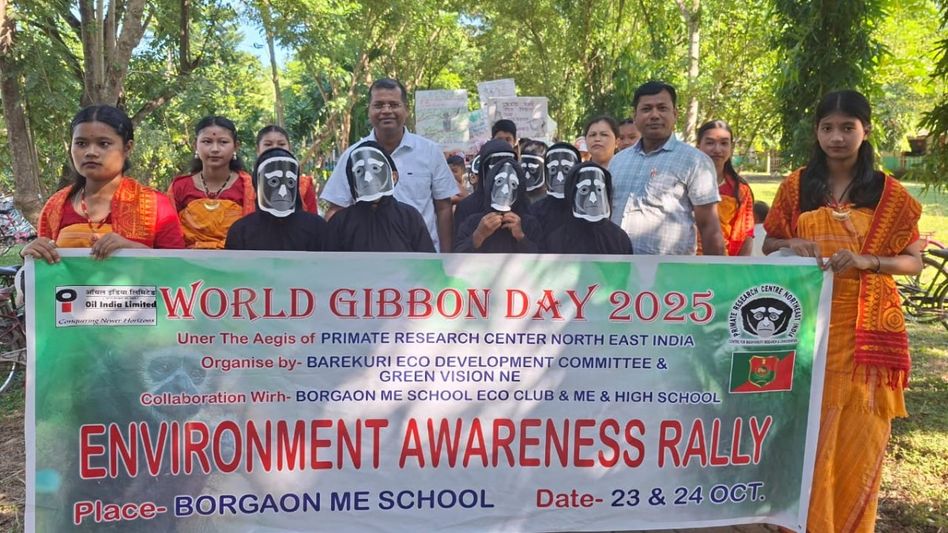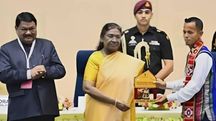Students lead spirited rally for gibbon conservation in Assam’s Barekuri
Students in Assam's Barekuri led a rally to raise awareness on gibbon conservation. The event stressed urgent action against habitat loss and poaching

More than 500 students took to the streets of Barekuri in Assam’s Tinsukia district to mark the 10th International Gibbon Day 2025 on October 24, sending out a strong message on the need for coexistence between humans and wildlife. The event, organised under the Primate Research Centre NE India (PRCNE), was hosted by the Barekuri Eco-Development Committee and Green Vision NE in collaboration with Borgaon ME School Eco-Club and Borgaon High School.
The day-long celebration featured art competitions, awareness campaigns and a mass rally aimed at promoting conservation of the Hoolock gibbon — India’s only ape species and a vital part of Assam’s forest ecosystem. Students wearing gibbon masks and T-shirts carried banners advocating harmony and conservation as they marched through Barekuri, a village known for its rare human–gibbon coexistence.
A tribute ceremony opened the programme, honouring late Assamese singers and nature lovers Zubeen Garg and Rajeeb Sodia. A public meeting followed, chaired by noted conservationist Joynal Abedin and attended by Divisional Forest Officer Bibison Tokbi of the Tinsukia Wildlife Division, PRCNE Senior Scientist Dr Jihosuo Biswas, and Upakhona Bokalial Gogoi, among others.
DFO Bibison Tokbi urged villagers to stop feeding gibbons and instead plant native food trees to help sustain them naturally. He revealed plans for a proposed green corridor linking the Barekuri gibbons with the nearby Borajan–Bherjan–Podumoni Wildlife Sanctuary. “The energy of these young participants gives us immense hope for the future of conservation,” he said.
Biswas drew attention to the growing threats facing Hoolock gibbons, recently listed among the world’s 25 most endangered primate species. He stressed that long-term protection depends on empowering local communities through sustainable livelihoods and conservation awareness.
Concluding the event, Upakhona Bokalial Gogoi encouraged students to reconnect with nature and contribute to forest restoration through tree planting. “Every small act of care can shape a greener, more harmonious future,” she said.
The celebration was coordinated by Diplob Chutia and the Barekuri Eco-Development Club, whose continuous efforts have made Barekuri a model for community-led conservation in Northeast India.
Copyright©2025 Living Media India Limited. For reprint rights: Syndications Today









